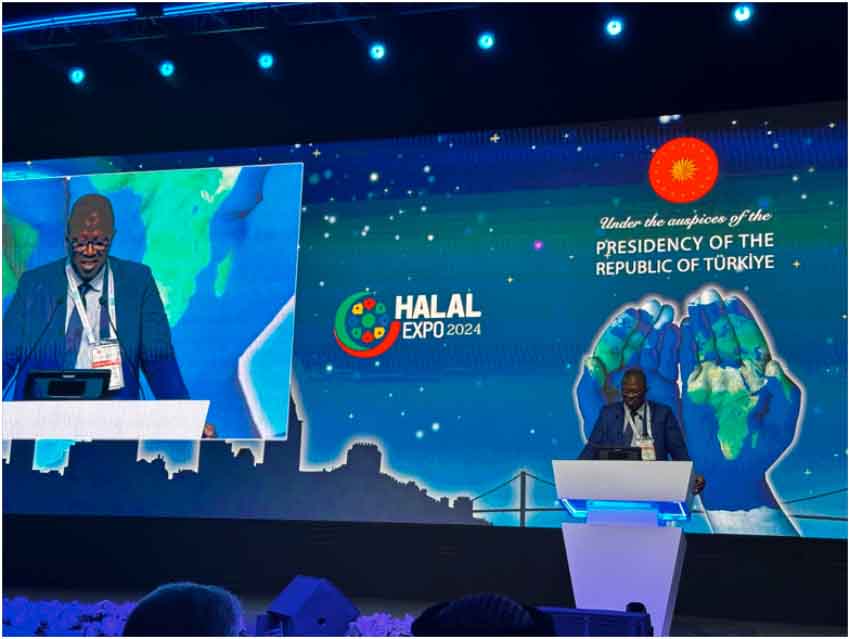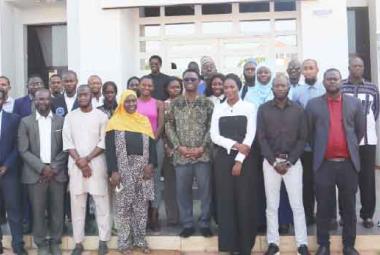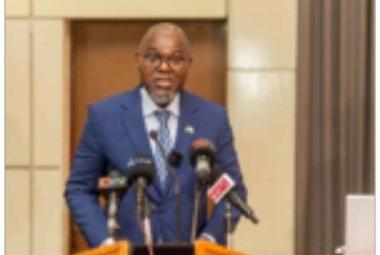By Mariatou Ngum
The Minister of Trade, Industry, Regional Integration and Employment Hon. Baboucarr O. Joof recently delivered a statement on behalf of the President of The Republic Gambia and Chairman of the OIC, His Excellency Adama Barrow at the 10th World Halal Summit and Expo in Istanbul. The summit, under the theme “A Decade of Halal Success: Uniting Vision, Shaping the Future,” highlighted the importance of collaboration and innovation in the halal industry. In his statement Minister Joof emphasized Gambia’s commitment to promoting halal trade and fostering economic growth whiles also strengthening global partnerships that champion ethical and sustainable practices.
According to him, the Government of The Gambia through The Gambia Standards Bureau have adopted number of measures to provide The Gambian private sector the opportunity to take advantage of the growing global halal industry. These measures, he said, include the adoption of Standards and Metrology Institute for Islamic Countries (SMIIC) halal standards and their promotion through sensitization and training programmes. The Gambia, he revealed also embarked on a number of assessment activities to ensure compliance to the halal food standards. “Given that tourism is one of the main service contributing to the Gambia’s GDP, plans are underway to mainstream halal tourism in the industry following the recent development of standards on halal tourism services. The idea is to facilitate diversification of The Gambia’s tourism market by attracting tourists from our Muslim brother countries and hence boosting trade in tourism services among the OIC countries,”. He told the meeting.
The Trade minister further noted that it has been established that the global halal industry is a multitrillion dollar business and is projected to grow to a two-digit trillion-dollar market by 2030. This, he said, means that the halal industry opens up several trade opportunities among OIC member states and beyond. “These opportunities are diverse and include sectors such as food and beverages, finance, tourism, fashion, cosmetics, pharmaceuticals, media and entertainment, healthcare and education. We should therefore leverage on these opportunities by creating synergies and partnerships among countries, between and within industries and through development cooperation and PPPs,” he stated. By so doing, He went on, the global Muslim countries would be better positioned to create a halal ecosystem that is sustainable and meets the expectations and demands of the Muslim Ummah.







